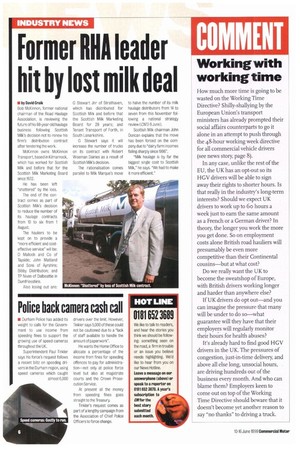COMMENT
Page 8

If you've noticed an error in this article please click here to report it so we can fix it.
Working with working time
How much more time is going to be wasted on the Working Time Directive? Shilly-shallying by the European Union's transport ministers has already prompted their social affairs counterparts to go it alone in an attempt to push through the 48-hour working week directive for all commercial vehicle drivers (see news story, page 8).
In any case, unlike the rest of the EU, the UK has an opt-out so its HGV drivers will be able to sign away their rights to shorter hours. Is that really in the industry's long-term interests? Should we expect UK drivers to work up to Go hours a week just to earn the same amount as a French or a German driver? In theory, the longer you work the more you get done. So on employment costs alone British road hauliers will presumably be even more competitive than their Continental cousins—but at what cost?
Do we really want the UK to become the sweatshop of Europe, with British drivers working longer and harder than anywhere else?
If UK drivers do opt out—and you can imagine the pressure that many will be under to do so—what guarantee will they have that their employers will regularly monitor their hours for health abuses?
It's already hard to find good HGV drivers in the UK. The pressures of congestion, just-in-time delivery, and above all else long, unsocial hours, are driving hundreds out of the business every month. And who can blame them? Employers keen to come out on top of the Working Time Directive should beware that it doesn't become yet another reason to say "no thanks" to driving a truck.












































































































